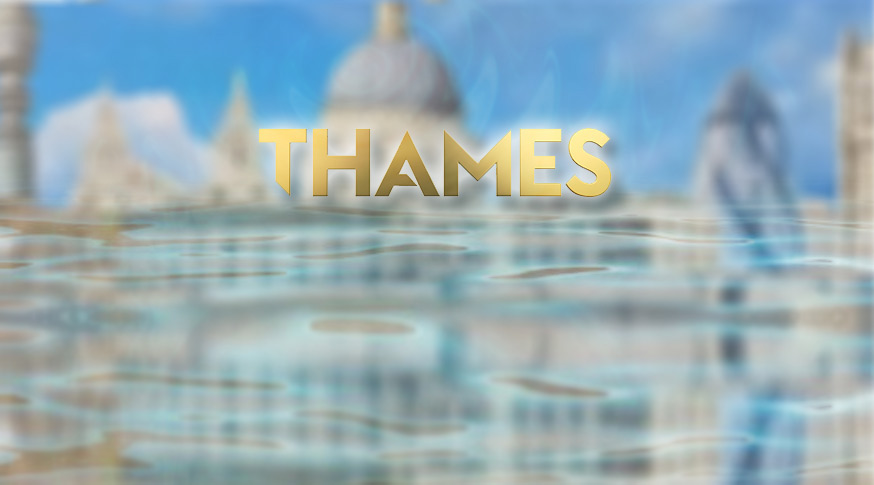A look back to forty years since the launch of London’s Thames Television.
This Week was Thames Television’s flagship current affairs programme and was briefly known as TV Eye during part of the 80’s. In the 1970’s the series had famously produced an episode on the National Front, which was also deeply controversial but it was its 1988 episode, Death on the Rock, that was the most controversial of all and perhaps led to Thames losing its franchise in 1992. The episode, which won a BAFTA, examined the shooting of three IRA members in Gibraltar and asked whether the version of events put forward by the Government was true or not.
Death on the Rock looked at the shootings of Danny McCann, Sean Savage and Mairead Farrell on Gibraltar by the SAS, all three known IRA members. The SAS had been briefed to arrest the three who were suspected by the intelligence forces of preparing a bomb attack in Gibraltar. The SAS however, was briefed that they could use deadly force if ‘those using them had reasonable grounds for believing an act was being committed, or about to be committed, which would endanger life or lives and if there was no other way of preventing that, other than the use of firearms’.
Unsurprisingly the government tried to stop the episode being broadcast in the UK and claimed it would prejudice the outcome of an official inquest into the event. The Independent Broadcasting Authority did not agree with the Conservative government and claimed the episode would be aired in the interest of ‘free speech and free inquiry which underpin individual liberty in a democracy’. The Prime Minister, Margaret Thatcher, was outraged by the documentary and said ‘If you ever get trial by television…that day, freedom dies.’ Thatcher was also said to be concerned about the ITV ‘monolopy’ in independent broadcasting.
 It wasn’t just the UK government that reacted badly to the documentary as, typically, Rupert Murdoc’s gutter tabloid The Sun – always sensationalist – and Murdoc’s higher brow, The Times, reacted negatively to it. At the time Murdoc was a supporter of the Conservative government. In America the documentary also got coverage in the press with the New York Times noting:
It wasn’t just the UK government that reacted badly to the documentary as, typically, Rupert Murdoc’s gutter tabloid The Sun – always sensationalist – and Murdoc’s higher brow, The Times, reacted negatively to it. At the time Murdoc was a supporter of the Conservative government. In America the documentary also got coverage in the press with the New York Times noting:
“Events leading up to the Gibraltar killings are depicted in a reconstruction made for a British documentary. Questions abound. Was the I.R.A. trio, carefully followed for days, in fact lured into Gibraltar? Why did the police fail to photograph the bodies or gather forensic evidence? Why was the press – Britain’s tabloids were jubilant – told lies about a huge car bomb being defused and about the three suspects having died in a gunfight? This documentary’s understated observation: There was a strong air of Government cover-up and disinformation.” – New York Times, June 13th 1989.
Interestingly the documentary was not known on the island of Gibraltar. The following year an inquiry into the episode was held by Lord Windelsham but the inquiry mainly cleared the documentary and noted a few errors. The documentary is often shown to Media students at Universities and colleges now as a prime example of an investigative documentary series from a commercial broadcaster – which is sadly lacking on ITV now.
In 1992 the ITV franchises were renewed but Thames lost their London weekday franchise in the shake up and many believed it was because of the ‘Death on the Rock‘ episode of This Week that cost them their broadcasting licence. The episode outraged the Government at the very highest possible level and also the government’s powerful friends within the press, notably Rupert Murdoc. Any claim that the loss of the Thames franchise in 1992 was purely coincidental doesn’t wash with many.












 It wasn’t just the UK government that reacted badly to the documentary as, typically, Rupert Murdoc’s gutter tabloid The Sun – always sensationalist – and Murdoc’s higher brow, The Times, reacted negatively to it. At the time Murdoc was a supporter of the Conservative government. In America the documentary also got coverage in the press with the New York Times noting:
It wasn’t just the UK government that reacted badly to the documentary as, typically, Rupert Murdoc’s gutter tabloid The Sun – always sensationalist – and Murdoc’s higher brow, The Times, reacted negatively to it. At the time Murdoc was a supporter of the Conservative government. In America the documentary also got coverage in the press with the New York Times noting: